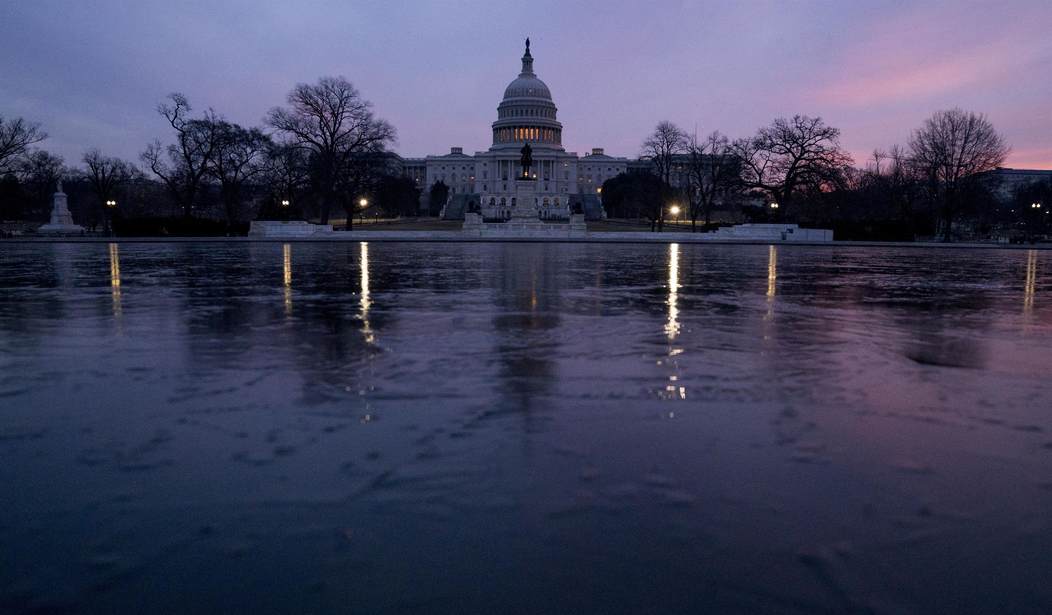For at least as long as I've written about politics (which has been a considerable amount of time), the national debt has been a "thing," meaning it's often talked about — sometimes more and sometimes less — but like the weather, nobody ever does anything about it. It's way past time for that to change.
First, the basics (emphasis, mine):
The national debt is the total amount of outstanding borrowed money the federal government has accumulated over time. Every year the US spends more money than it earns results in an annual budget deficit.
These deficits add up over time, creating a shortfall that the US covers, in part, by borrowing money from investors; otherwise, the government would need to cut services, increase revenues, or some combination. These loans — plus the interest owed — are the national debt.
The national debt grows every year there’s a deficit, as the country borrows an increasing amount of money. The US has run a budget deficit every year for the last 20 years, during which time national debt has grown fivefold.
So how bad is it?
Ever-increasing debts and deficits not only threaten economic growth and fiscal stability; they also threaten income levels and increase the risk of an acute fiscal crisis if investors lose faith in the government’s ability to service its debt in full.
House Budget Committee Chairman Jodey Arrington (R-TX) addressed the issue at a hearing on Wednesday:
We've got major fiscal problems and a completely unsustainable fiscal trajectory. I haven't heard anyone, Democrat or Republican, witness or member, that doesn't accept that fact. This is a moral imperative, to right this ship before it sinks.
Agreed. But again, the weather analogy.
And as Arrington said, neither party is exclusively to blame as the national debt continues to explode.
As RedState reported on October 22, over a period of just three weeks, total national debt jumped by $473 billion to a record $35.8 trillion. In 2024 alone, the U.S. (i.e., we the taxpayers) have paid $1.16 trillion of interest on the debt, the first year above the $1 trillion mark.
You can't make this up:
— The Kobeissi Letter (@KobeissiLetter) October 21, 2024
Total US debt has jumped by $473 BILLION over the last 3 weeks alone, to a record $35.8 trillion.
This means the US has taken on $1,450 of debt for EVERY American over the last 3 weeks alone.
It also means that the US now holds a record $103,700 of debt… pic.twitter.com/0ocgYe56A5
Clearly, we're headed toward a financial disaster if both parties don't come to grips with reality, roll up their sleeves in a bipartisan manner, and stop the madness before it really gets out of control.
READ MORE:
CATASTROPHE: U.S. National Debt's Unbelievable Spike Over the Last Three Weeks
Deficit Nearly Doubles to $2 Trillion As Lawmakers Continue to Borrow and Spend Like Drunken Sailors
Arrington said in his testimony that even Constitutional amendments may be necessary to stave off a complete fiscal crisis in America.
While we've all heard catastrophic-sounding rhetoric from both parties over the years, that's as far as we've gotten: rhetoric — and, of course, blaming the other side of the aisle.
David Walker, chairman of the Federal Fiscal Sustainability Foundation, echoed Rep. Arrington's warning during his testimony. Walker said the country is on an unsustainable path that poses both serious economic consequences and endangers national stability and security.
The federal government has grown too big, promised too much, subsidized too many, undercut states’ rights, and lost control of the budget. Failure to change course, restructure our nation’s finances, and transform the federal government’s operations will have serious adverse economic security, national security, diplomatic, and domestic tranquility consequences over time.
Bingo (the bolded comment above).
The fundamental problem with government is its propensity to eagerly spend OPM — other people's money — like drunken sailors. And that "other people's money" happens to be the money of American taxpayers, who continue to pay an ever-increasing amount of debt service (interest payments) on the every-increasing national debt.
I'm reminded of former U.K. Prime Minister Margaret Thatcher and her stark truism:
The problem with socialism is that you eventually run out of other peoples' money.
The Democrat Party bristles when it's accused of supporting socialist policies. Fine. Forget the label. Call massive wealth redistribution schemes whatever you want to; the end result is the same.
During Walker's testimony, he recommended several potential solutions to the committee that he said would cumulatively help solve the growing debt problem, including passing the Fiscal 2025 appropriations bills, which he said should reduce bloated spending by deleting expired programs and non-recurring items.
This Brings Us to DOGE
Walker had high praise for Trump's proposed Department Of Government Efficiency, or DOGE, but he also stressed that the U.S. should establish a Fiscal Sustainability Commission to reduce spending, reform social insurance programs, and modify the tax system to truly make a lasting impact.
Easier said than done.
The day after politicians win elections, they start thinking about reelection, which in many cases leads members of both parties to avoid hard votes on hard issues. We've seen it for decades; I suspect we're going to continue seeing it.
A final word about DOGE.
DOGE would be an advisory body only, meaning its job would be limited to advising the president and Congress on recommended changes.
If you're thinking what I'm thinking, you know this fact takes us back to square one: politicians who lack the political backbone to make hard choices on hard issues. Until that reality changes — if it ever does — the federal government will continue to spend your money like drunken sailors.













